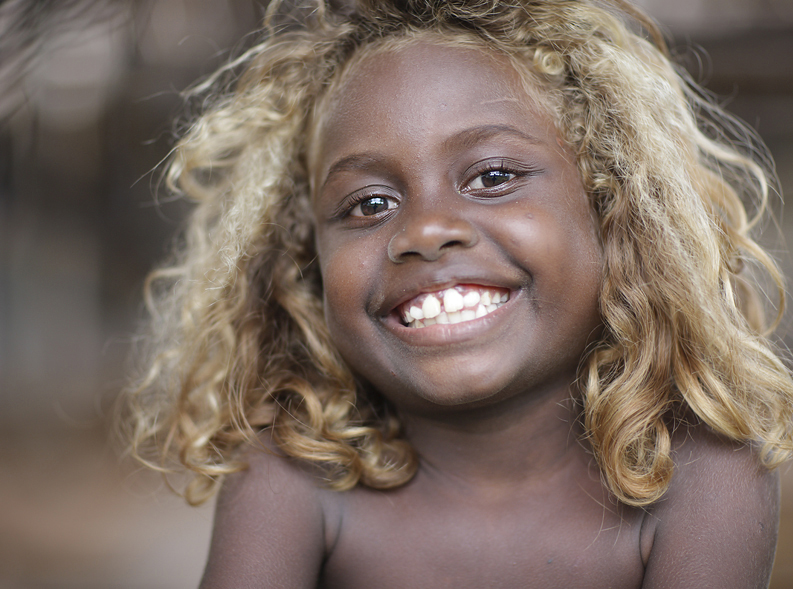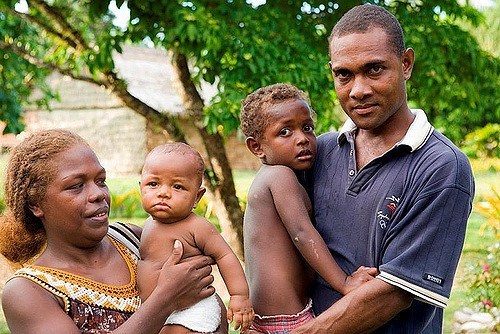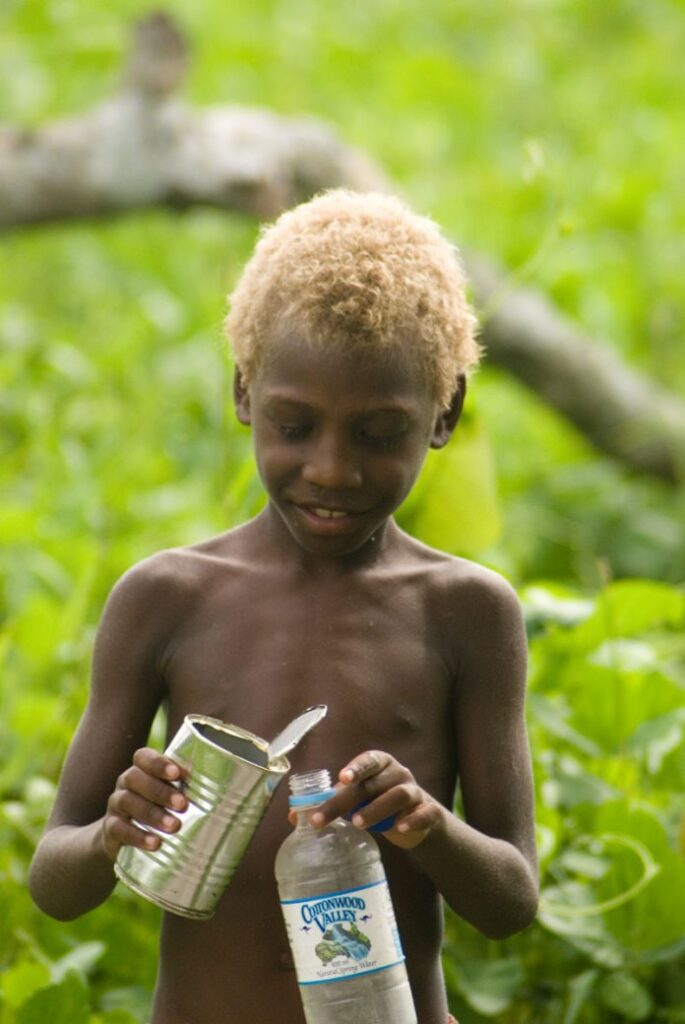It is believed that blonds can only be found among Caucasian people. But scientists have a question that baffled them for years. That is how Melanesians have blonde hair? Melanesians have the striking contrast of the darkest skin in the world outside of Africa.
For several years, blond hair was attributed to Caucasian people. But it is found out that Melanesians of the Solomon Islands are also among the few groups with blonde hair outside Europe.

They are black island people in the south pasific that migrated over thousands of years ago, long before the blacks who brought to America as slaves.
Melanesia is a subregion of Oceania which covers from the Western end of the Pacific Ocean to the Arafura Sea, and eastward to Fiji. This region includes North and northeast Australia, including the countries of Papua New Guinea, Fiji, Vanuatu, Solomon Island, and New Caledonia.
In 1832, Jules Dumont d’Urville used the name Melanesia. It was denoted an ethnic and geographical grouping of islands from Polynesia and Micronesia.
Recent scientific discoveries suggest that the cultural, linguistic, and political fragmentation that prevailed at the time of European arrival, with half-dozen languages and cultures often represented on a single island, was partly a product of transformation that had occurred during the previous 2,000 years.
Indigenous Melanesian people practiced cannibalism, head-hunting, kidnapping, and slavery, until recently just like the Asmat tribe. But with the arrival of Europeans, the population is now predominantly Christian. But still, more than 90% lead rural lives.

When it comes to dark skin and blond hair, the Melanesian people of the Solomon Islands are the point of interest. The Solomon islands combined is an independent state within the British commonwealth. And these islands are located in the south pacific, the very heart of Melanesia, just northeast of Australia, between Papua and Vanuatu.
Between 5 – 10% of the indigenous Melanesian population have bright blond hair, although they all possess the darkest skin outside of Africa.

From the genetic heritage of mixed breeding with Americans/ Europeans who founded the islands, high fish intake, or from sun and salt whitening, there are several theories on how they got their blond hair.
Sean Myles is a geneticist from Nova Scotia Agricultural College in Canada. He conducted a genetic analysis on saliva and hair samples from 1209 Melanesians from Solomon island. And then he compared the results of 43 blond islanders and 42 brown islanders. He found that the blondes carried two copies of a mutant gene. That gene is in 26% of the island’s population. These Melanesian people have a native gene called TYRP1. And that gene is partly responsible for blond hair and melanin. But when it comes to the Caucasians they don’t have these genes in them.

This gene is a recessive gene. It is more common in children than in adults. So the hair is getting darker when the children grow up.
This finding contributes to the theory that black Africans were the first homo sapiens and that all races evolved from the black African race.
With pidgins and creole languages developing from trade and cultural interaction centuries before European encounters, Melanesia currently has over 1,000 languages. Although some people still practice their native religions such as the belief in different spirits that inhabit the forests, mountains, and swamps, the main religion is Christianity, with many missionaries across the area.

The present tropical region of Melanesia has to face some social problems such as alcoholism, crime, and other serious health conditions like malaria, and AIDS just like the rest of the world. But these problems can be found particularly in Papua New Guinea.
Despite these challenges, this region is a paradise for so many people because of its beautiful islands with an exotic history and culture. And it has got the friendliest people in the world.







Leave a Reply